
Key Words: Arctic;melt;accelerating;ice cap;opportunities;resources;
Related Reading:
>> China calls for Norway to improve ties
>> Norway supportive to China's bid for permanent observer to Arctic Council
>> China eyes more polar voyages, bases
The annual conference of Arctic Frontiers, the world's largest arctic affairs forum, kicked off in Tromso in northern Norway on Jan. 21. The delegates said that the warming of Arctic might bring a lot of opportunities, but a common issue faced by both the arctic and non-arctic countries is how to carry out the resource development and other economic activities on the premise of protecting Arctic environment.
Arctic melt accelerating
According to the latest monitoring report of Arctic climatic change published by the Arctic working team of monitoring and valuation under the Arctic Council, the accelerating melting of sea ice and icecap in Arctic region is beyond the imagination of people, which will ultimately change the ecological environment of the region and the global climate.
The monitoring report pointed that the area Arctic icecap covers had shrunk to about 3.4 million square kilometers as of mid September 2012, reaching the minimum level since human began to accurately record the covering area of Arctic icecap in 1973. According to historical records, the average covering area of Arctic summer ice cap was 7.5 million square kilometers between 1979 and 2000, which was twice the size of the covering area of Arctic icecap measured in 2012.
Climatic change will bring new opportunities
As Norwegian Foreign Minister Espen Barth Eide said at the opening ceremony, climate change will bring new opportunities for economic growth. With the increases in exploitation of energy and mineral resources in the Arctic region, the use of Arctic channels and the Arctic fishery, a new change will be brought to the international political and security patterns. Experts estimated that the reserves of unproven natural gas and untapped oil in the region account for 30 percent and 13 percent of the global reserves respectively. The Arctic Council member states including the United States and Russia are making efforts to promote the exploitation of energy resources of the region.
Speaker of Norwegian Sami Parliament Igor Uri said that the Arctic warming will increase not only the economic activities but also the likelihood of contamination. The Sami people living in the Arctic region will suffer more from the climatic change than people in other regions. Therefore, Igor Uri called other countries to take the interests of local people into consideration when drafting economic policies.
The governance of Arctic region will become more institutionalized
The conference also proposed the concept of "holarctic," pointing out that the changes in Arctic are not just the matter of Arctic countries. All countries inside and outside the Arctic Circle should prepare to deal with a "new Arctic," and they must treat and solve the problems and challenges in a global perspective to establish good dialogues between politics, economy and ecology. The Arctic Council should welcome more countries to become its observers. Eide told the media that Norway supports any eligible country including China to become the permanent observer of Arctic Council.
Read the Chinese version: 以全球视角应对“新北极”, source: People's Daily, author: Liu Zhonghua
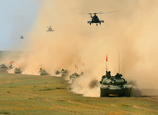
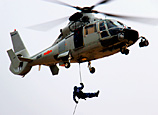
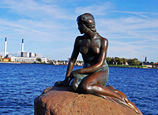
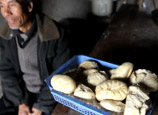

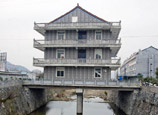










 Going back home: A standing journey
Going back home: A standing journey


![]()
